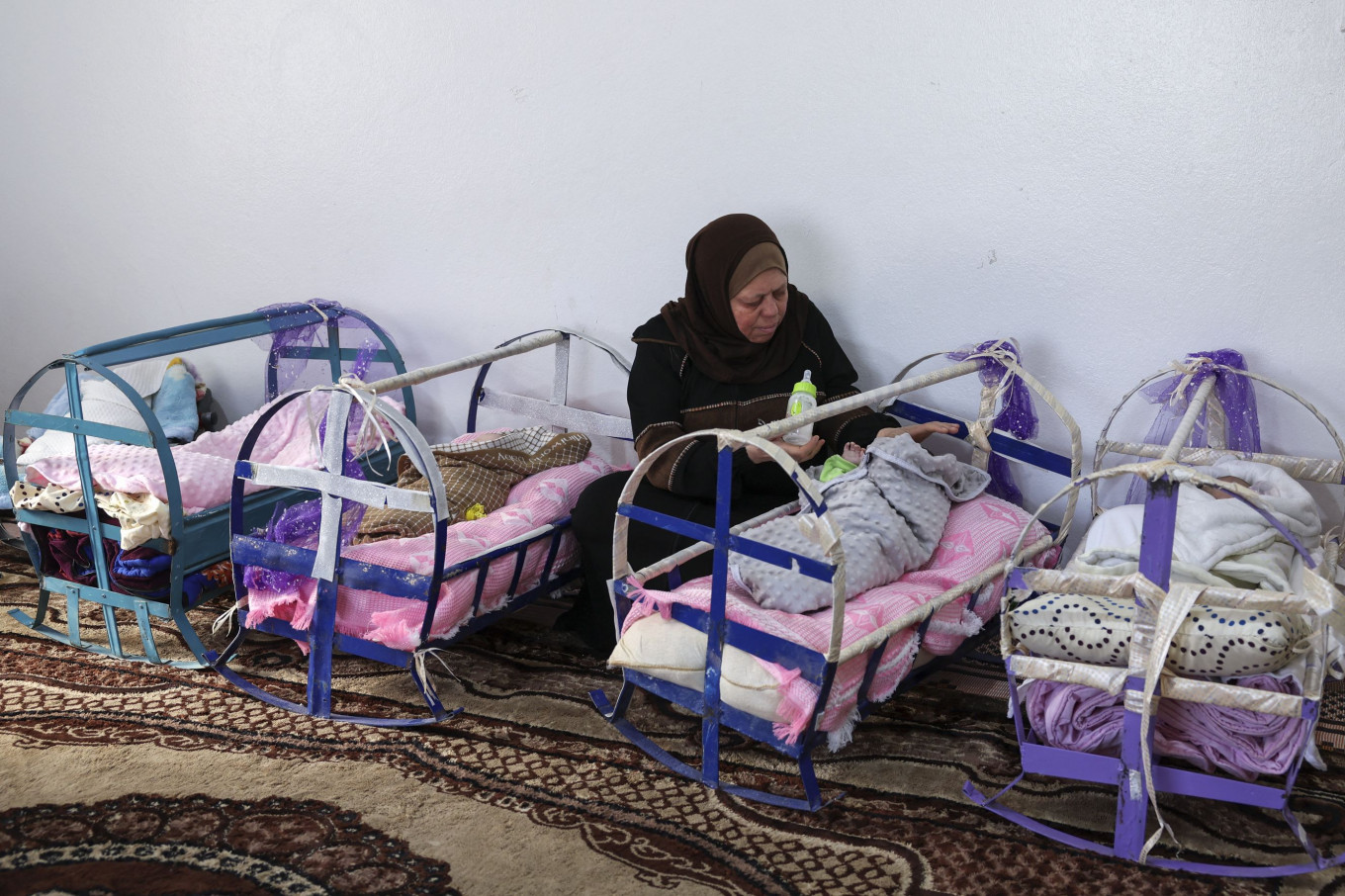Popular Reads
Top Results
Can't find what you're looking for?
View all search resultsPopular Reads
Top Results
Can't find what you're looking for?
View all search resultsSyrians abandon babies at mosques, under trees as war grinds remorselessly on
Officials say babies are being left outside mosques, hospitals and even under olive trees in war-torn Syria as more than 12 years of grinding conflict fuel poverty and desperation.
Change text size
Gift Premium Articles
to Anyone
O
ne cold winter night, Syrian Ibrahim Othman went out to pray and came home cradling a baby girl, abandoned at the doorstep of the village mosque just hours after she was born.
"I took her home and told my wife, 'I brought you a gift'," said the 59-year-old resident of Hazano, in rebel-held northwest Syria.
He named the baby Hibatullah, meaning "gift of God", and decided to raise her as one of the family.
Officials say babies are being left outside mosques, hospitals and even under olive trees in war-torn Syria as more than 12 years of grinding conflict fuel poverty and desperation.
"Only a few cases of child abandonment" were officially documented before the war broke out in 2011, according to the Washington-based group Syrians for Truth and Justice, which records human rights abuses in the country.
But between early 2021 and late 2022, more than 100 children – 62 of them girls – were found abandoned across the country, it said in a March report, estimating the real figure to be much higher.
"The numbers have increased dramatically" since the start of the conflict along with "the social and economic repercussions of the war" affecting both government-controlled and rebel-held areas, the group said.
It pointed to factors including poverty, instability, insecurity and child marriage, along with sexual abuse and pregnancy out of wedlock.
While adoption is forbidden across Syria, Othman has asked the local authorities for permission to raise Hibatullah.
"I told my children that if I die, she should have part of my inheritance," even though she can never officially be part of the family, he said, breaking into tears.
The 3-year-old, her hair pulled back loosely into pigtails and tottering around in shiny pink sandals, now calls him "grandpa".
"She is just an innocent child," Othman said.
'Victims'
Syria's war has killed more than 500,000 people, displaced millions and ravaged the country's infrastructure.
Health department official Zaher Hajjo told AFP that 53 abandoned newborn babies had been registered in government-controlled areas in the first 10 months of last year – 28 boys and 25 girls.
Syrian President Bashar al-Assad this year issued a decree creating dedicated facilities for the children, who would be automatically registered as Arab, Syrian and Muslim, with the place of birth as the location they were found.
In rebel-held Idlib province, social workers at the main center for abandoned children tended to tiny babies wrapped tightly in blankets in basic cradles, some spruced up with purple paint or ribbons.
In the bare-walled room with a brown-and-beige carpet, one woman rocked a baby to sleep with one hand while feeding another milk with the other.
Faisal al-Hammoud, head of programs at the center, said one baby girl they took in was found under an olive tree after being mauled by a cat.
"Blood was dripping down her face," he said, adding that the orphanage had since entrusted her to a family.
Workers follow up to make sure such babies are well treated and "that there is no child trafficking", Hammoud added.
The center has taken in 26 babies – 14 girls and 12 boys – since it opened in 2019, and nine this year alone, said Abdullah Abdullah, a civil affairs official with Idlib's rebel authorities.
More than 4 million people live in areas controlled by jihadists and Turkish-backed groups in Syria's north and northwest, 90 percent of whom depend on aid to survive.
"The war is to blame and families too" for child abandonments, Abdullah said.
"These children are victims," he added.










